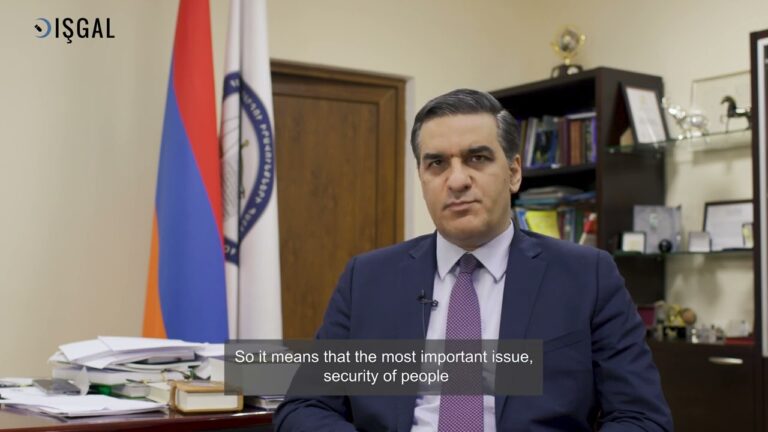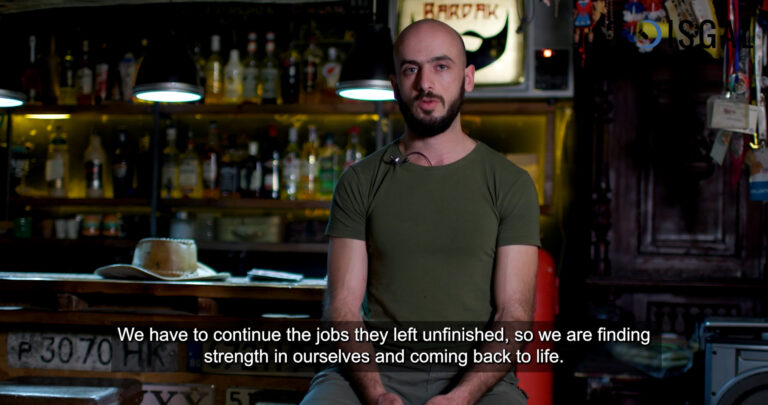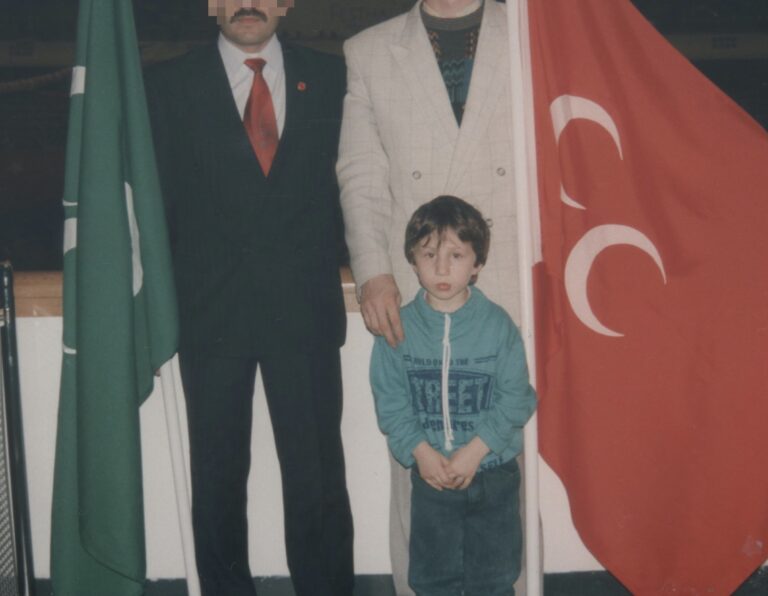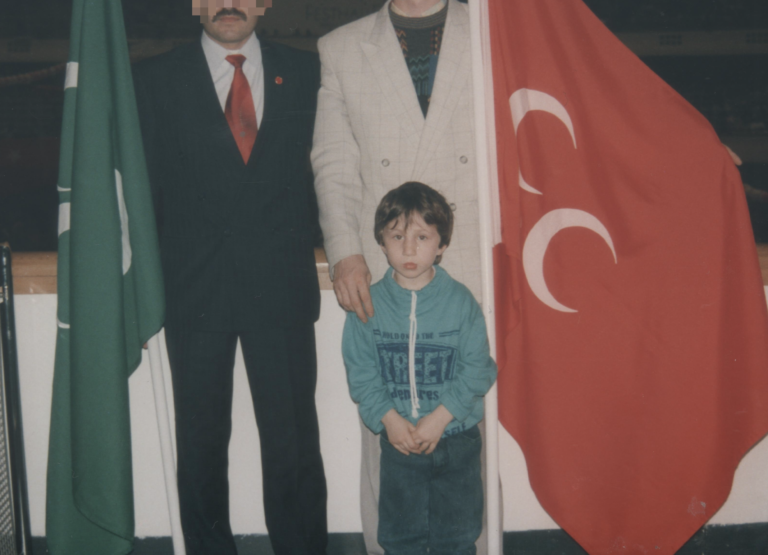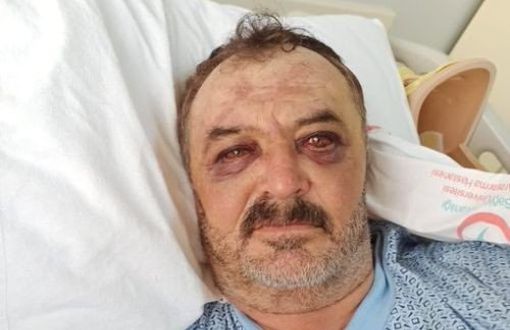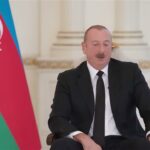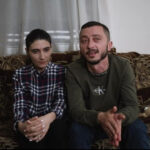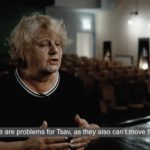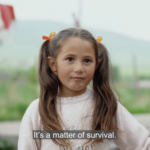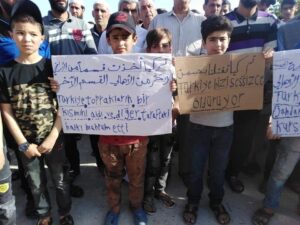“The effects of indoctrination were already evident in kindergarten. One time, I brought a cassette tape featuring Turkish nationalist singers to school. Another time, when we were given big pieces of paper on which to paint, while my classmates painted flowers and bees, I painted the flag of the Turkish Republic of Northern Cypress.”
In his memoir, The Infidel: My Insights into a World of Fundamentalists and Right-Wing Extremists from Radicals to Sufis, Erol Ünal, born in Germany to Turkish parents, chronicles spending his formative years immersed in Turkish nationalism and the experiences that led to his eventual decision to reject the movement.
Established in Turkey in the late 1960’s, the Grey Wolves (or Ülkücü, the Turkish word for “idealist”) movement aspires to the establishment of a Turkish empire. Adherents often refer to territories that once comprised the Ottoman Empire, such as parts of Greece, Syria, and Iraq, as “captive Turkish territories.”
Grey Wolves are hostile towards Kurds, Armenians, Greeks, Christians, and Jews. They are vehemently opposed to communism and have a long history of violence towards those on the political left. They were responsible for thousands of politically-motivated murders in Turkey in the 1970’s and 1980’s.
According to Erol Ünal, “[t]he ‘enemies of Turkey’ are never mentioned by name, but the Grey Wolves in the prayer room knew who they were: Kurds, who were close to the PKK, Western powers, who allegedly cast an eye on Turkish territory, the so-called Jewish business elite, Alevis ruling the state, leftist, and many others. It would be faster to say, everyone but the [Grey Wolves] are enemies.”
The Grey Wolves emerged in Germany in 1978 with the establishment of the Federation of Turkish Democratic Idealist Associations (ADÜTDF.) ADÜTDF received support from the CSU and CDU, two center-right Christian political parties in Germany who saw the Grey Wolves as a way to temper the influence of communist-leaning, leftist German-Turkish politicians in the country.
In Germany today, there are an estimated 20,000 Turkish ultra-nationalist Grey Wolves belonging to hundreds of organizations, most offshoots of three umbrella associations: Turk Federayson, Union of Turkish-Islamic Cultural Associations in Europe (ATIB), and Association of Turkish Cultural Associations in Europe (ATB.) Erol Ünal spent most of his youth in organizations associated with Turk Federayson, which accounts for 7,000 Grey Wolves and around 160 mosques in Germany.
The Grey Wolves movement in Germany is inextricably linked to Turkey’s ultranationalist MHP party, which is in a coalition with Turkish President Recep Tayyip Erdogan’s AKP party. In late 2020, following Grey Wolf attacks on Armenians protesting the war in Nagorno-Karabakh and the defacement of an Armenian Genocide memorial near Lyon, French Interior Minister Gerard Darmanin announced that the Grey Wolves organization would be banned in France, as it “incites discrimination and hatred and is implicated in violent actions.” The ban drew swift condemnation from the Turkish government.
At the same time, politicians from Germany’s opposition parties urged Germany to institute a similar ban, citing a long history of Grey Wolves-perpetrated violence in Germany. Left party lawmaker Sevim Dagdelen said that the Grey Wolves are the largest right-wing organization in Germany, and compared the Grey Wolves hand gesture, a fist with the little and index fingers of the hand raised, to the Hitler salute. In May 2021, the European Parliament urged EU member states to list the Grey Wolves as a terrorist organization.
Germany’s Interior Minister Peter Beuth said the groups have been under the observation of the German government since 2012. But the associations affiliated with the Grey Wolves movement officially denounce it, giving their offshoot clubs innocuous-sounding names like “German-Turkish Federation” and “Turkish Cultural Center.”
“If you look at it from the administrative point of view, the Grey Wolves actually do not exist in Germany,” Herbert Müller from the Office for the Protection of the Constitution in Baden-Württemberg told German media outlet ZDF in 2019. “We have clubs and a structure all over Germany that can be assigned to the so-called Nationalist Movement Party in Turkey.”
The “Hit List”
On July 7, 2021, Erk Acarer, a Turkish journalist living in exile in Germany, was attacked in the garden of his home in Berlin. A little more than a week later, an apparent “hit list” of 55 Turkish dissenters, most of them journalists living in exile in Europe, came to the attention of authorities in several European countries. Erk Acarer’s name appeared on the list.
Another of the listed targets was journalist Cevheri Güven, former editor of Nokta, a news magazine in Turkey. After Nokta published a magazine cover featuring a doctored photo of Turkish president Erdogan smiling and taking a selfie in front of the flag-draped coffins of Turkish soldiers in 2015, Güven was arrested. While awaiting trial, he fled from Turkey to Greece with the help of a smuggler and made his way to Germany, where he sought asylum. Nokta was one of more than 150 newspapers and media outlets shuttered by the Turkish government following the 2016 coup attempt. Ultimately, Güven was sentenced to 22.5 years in prison in absentia.
“The Grey Wolves were likely involved in the attack on Erk Acarer,” Güven said. “I’ve received threats for the last six years, but I think this [list] was the most serious threat so far.” German Federal Police visited Güven at his home multiple times. They gave him the direct contact numbers for two officers handling his case and warned him to avoid areas with a high concentration of Turkish people.
“I think MİT (Turkish National Intelligence) and the Turkish Ministry of the Interior are behind this list,” he said. “The Grey Wolves are part of Erdogan’s government. The Interior Minister, Süleyman Soylu, was especially integral in strengthening the Grey Wolves movement in Turkey. And [former AKP deputy] Metin Külünk strengthened the Grey Wolves movement in Germany,” he said.
Metin Külünk has been linked to Osmanen Germania, a Grey Wolves-aligned Turkish nationalist biker gang in Germany. The gang was banned by the German government in 2018, after its eight of its members stood trial on charges of attempted murder, drug trafficking, kidnapping, and forced prostitution.
“The AKP published this list to make us targets for the fanatics here,” Güven said. “After the list was published, journalists close to the Turkish government released a video containing all our pictures. I want to believe Germany is taking action and has strict measures in place, but I don’t know if that’s true. And I don’t know how much the life of a refugee journalist is worth in Europe these days. If you look at what has happened in the past, at the murders these Grey Wolves have committed, anything is possible.”
The Making of a Turkish Nationalist
Erol Ünal’s parents emigrated from the Black Sea region of Turkey to Germany in the 1980s and were ardent followers of the Grey Wolves movement. Ünal wrote that at a Turk Federayson event, his father had the opportunity to take a photo with Alparslan Türkeş, the founder of Turkey’s ultranationalist MHP party, and would proudly show it to anyone who visited their home.
Turkish was the primary language spoken in Ünal’s home. He had so little knowledge of the German language that when he started kindergarten, he could barely understand his teacher. He recalled feeling inferior to those around him because of his poor German language skills.
“At home, I spoke Turkish almost exclusively. At school, I spent time with my friends conversing in Turkish, and, last but not least, I spent my weekends with an organization that only spoke Turkish and propagated Turkish nationalism,” Ünal wrote. “One thing I can say with certainty: whether in Turkey or in Germany, this feeling of inferiority forms the foundation of the ideology of the Grey Wolves and supporters of Erdogan.”
Much of Ünal’s childhood was spent attending religious services and events aimed at indoctrinating Turkish youth in Germany. At age 7, Ünal began attending Quran lessons at one of the mosques run by Turk Federayson. “We began reading passages from the Quran, but we weren’t taught any translations, so we had no idea what we were reading.”
While racist remarks in the Grey Wolves environment were commonplace, certain statements by religious leaders in the Turk Federayson stood out to Ünal. During one speech, an Imam told the congregation that Greeks were evil and sought to buy real estate in Turkey to fulfil their old dream of Constantinople.
“It was surprising to hear the Imam say this in front of everyone,” Ünal remembers. “But it increased my prejudice against the Greeks. The insults Turkish nationalists would use, like calling someone, ‘Greek seed,’ and ‘Armenian seed,’ settle in your mind. Being Greek is seen as equivalent to blasphemy. And unfortunately, this sentiment isn’t limited to the Grey Wolves.”
As with Greeks, Ünal said that Kurds, political communists, and Alevis are consistently demonized in the Grey Wolves movement. “Alevis are seen as infidels, as expressed by a phrase in the conservative Sunni environment: ‘You live like an Alevi,’ which means one has the lifestyle of a non-believer.”
In The Infidel, Ünal summarizes the Maraş massacre of 1978, wherein at least 111 people, most of them Alevis, were murdered in the city of Kahramanmaraş. The massacre is believed to have been perpetrated by Grey Wolves-linked MHP party members and Turkish Intelligence operatives. Ünal says he wasn’t aware of the Maraş massacre, or other Grey Wolf-initiated violent incidents that followed it, until his late youth. “Most German Turks don’t know anything about these events, and even the Turks in Turkey are unaware. These massacres aren’t mentioned in Turkish schools. This terrible chapter of Turkish history is simply skipped, as is the Armenian Genocide.”
Growing up, denial of the occurrence of the Armenian Genocide was a given for Ünal and others in the Grey Wolves movement, but curiosity led Ünal to begin researching the events online. “I was very biased in the beginning. My Turkish nationalist identity had been built since I was a child, and it took a long time to break it down. As I researched the Armenian Genocide, I was seeing evidence that I wasn’t aware of before, and my curiosity was growing. Although it was hard to accept, after about a year of research, I accepted that it was a genocide.”
In Grey Wolves meetings, Kurdish militants were often referred to as “jackals” and were especially reviled. “We despised the PKK very much, and we loathed the Kurds who were close to them. The Kurds who were openly religious and professed to be loyal to the Turkish state, we liked, but we didn’t consider them equal to us.” It took Ünal years to shed his racist beliefs.
“If you constantly insult Greeks, Armenians, Jews, Alevis, and Kurds, you start to see them as subhuman, Ünal said. “These racist views are reinforced with Turkish nationalist films, stories, and music. So it’s not just belittling other ethnicities and societies, it’s exalting your own, as well.”
“Because of my Kurdish, Alevi, and Dersim identity, my life has always been under pressure”
One of the non-journalists on the “hit list” was musician Ferhat Tunç, who has been outspoken on the subject of Kurdish rights throughout his career. “In the 1990s, I received death threats from JITEM (Turkish Gendarmerie’s Intelligence Organization),” Tunç said. “I was detained and arrested many times because of my dissident artist identity. I have always stood against the war policies imposed by the Turkish government as a solution to the Kurdish problem. Because of my Kurdish, Alevi, and Dersim identity, my life has always been under pressure.”
In 2018, Tunç was charged with propagandizing for the PKK as a result of tweets he made in support of the predominantly-Kurdish YPG fighters battling ISIS in Kobani, Syria in 2014 and 2015. In 2019, he left Turkey and settled in Germany. “I have been in exile for 2.5 years. I am far from my country, because I do not remain silent about the authoritarian policies of the government, and I do not act against human and artistic values.
“Those named in this ‘hit list’ are people who had to leave Turkey due to the oppressive, repressive nature of the existing Turkish government,” Tunç continued. “The government’s policy is this: ‘I will either make him pledge his allegiance, or I will silence him.’ A government with such a mindset cannot tolerate any criticism, even a song or a tweet. So I am on this list because I am a dissident artist. I’m 57 years old, and I had to leave my 40 years of artistic life behind in Turkey.”
Like Cevheri Güven and many others, Tunç also believes there is a direct link between the AKP and MHP and the Grey Wolves who operate in Germany. “I also believe that those who prepared these lists are related to the current AKP/MHP government,” Tunç said. “This is the common view among the public. Now the government has a responsibility. If they say, ‘It has nothing to do with us,’ and expose these potential killers to Germany. If they don’t reveal them, anyway, this common view is proven to be correct.
“Turkey, whose artists, journalists, and dissidents were killed, and whose government had direct or indirect involvement in this, has lost its democracy. I want democracy and I want a country where it is unthinkable to kill anyone for their opinion. I do not remember ever being afraid of dying my whole life. I have the same feelings today. However, I have not completed my responsibilities as an artist. I believe I have more songs to sing. My people and my family need me now more than ever. I do not want to fall into the error of making the murderers’ job easier.”
Turkish fashion designer Barbaros Şansal, also present on the “hit list,” says he’s faced threats from the Turkish state since 1976. “I don’t worry; after all I’ve faced, if they want to kill me, they can,” he said.
On New Years’ Day in 2017, Şansal posted a video in which he criticized the Turkish government, saying, “[w]hile scores of journalists are in prison, while children are sexually harassed, raped, while corruption and bribes are everywhere, while extremists are distributing shit to you in the streets, are you still celebrating the New Year? I am not. Carry on your celebration in disgrace, misery and dirt. Drown in your shit, Turkey.”
After posting the video, Şansal was detained by the Interior Ministry of the Northern Cyprus occupation government and deported to Istanbul, where he was attacked by other passengers on his flight and Turkish Airlines employees before being taken into police custody. “I was, am, and will always be on ‘the list,’” Şansal said.
The Unmaking of a Turkish Nationalist
Erol Ünal describes his shift away from the Grey Wolves movement as a turning period rather than a turning point. “After years of research, reading, and discussion in my youth, I abandoned Turkish nationalism,” he said. “And I abandoned Islam when I was 20 or 21 years old.”
When protests over the Turkish government’s urban development plan for Istanbul’s Taksim Gezi Park erupted in 2013, police brutality against the demonstrators led to the injury of thousands of people. “I broke away from the conservative social circle I grew up in and knew very well at this point,” Ünal said. “The fact that they still supported Erdogan after witnessing this oppressive, authoritarian display completely broke my emotional bond with them.”
Ünal believes the German public has started to take some notice of the Turkish nationalist movement in Germany. “But I can’t understand how German politicians turn a blind eye to Turkish nationalists,” he said. “Maybe it’s a strategy to keep the nationalist and conservative Turkish segment of Germany completely before an election.”
A Turkish Jandarma officer, writing to me on Facebook to condemn my reporting, put it more bluntly: “The Grey Wolves in Germany are basically terrorists,” he said. “They exist to create internal turmoil. But their presence is why Germany has to support Turkey.”
Erol Ünal says he worries about the Turkish-German youth today. “The wave of nationalism in Turkey also affects them, and therefore, they isolate themselves from society in Europe and Germany. They withdraw and absorb themselves in Turkish nationalism abroad.
“It is very difficult for someone who has been raised in the Turkish nationalist ideology to get out of the mindset they’ve been taught since birth. It’s necessary to prevent it, and that starts with education. An education that teaches critical, free, peaceful, and humanist values rather than a nationalistic, dogmatic education that terrifies children is a must.”
